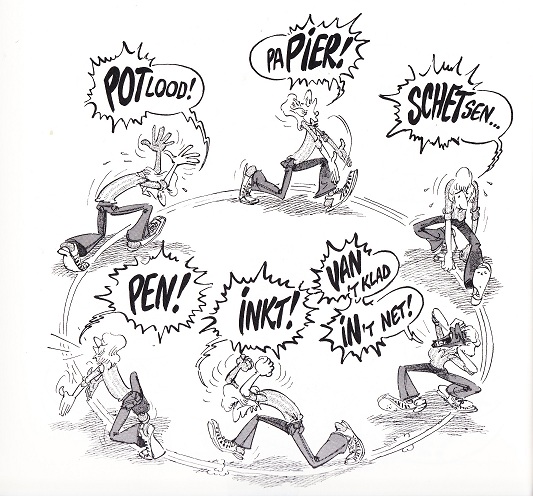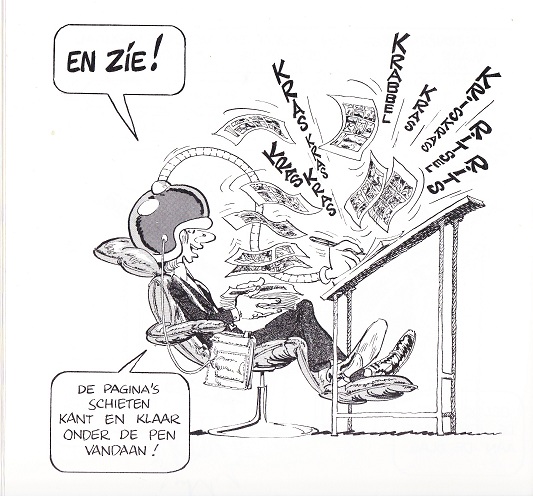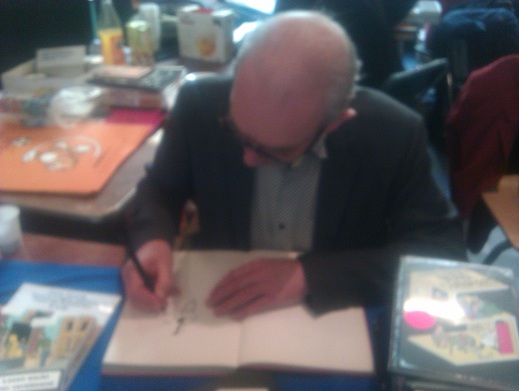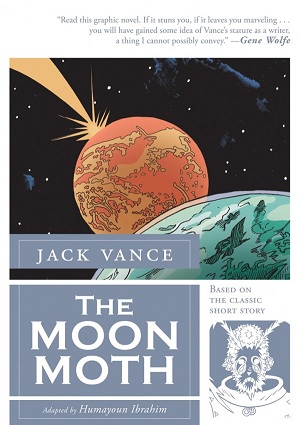In the eighties Dutch cartoonist Theo van den Boogaard became popular all over Europe with his Sjef van Oekel comic, a classic clear line gag strip subverted by an anarchistic, scatalogical sense of humour. I talked about him last year, when there was an exhibition of his cartoons and architectural drawings in the Amsterdam City Archives. While Sjef van Oekel, despite its anarchistic undertones was a thoroughly commercial comic, van den Boogaard had actually made his reputation in the seventies as part of Holland’s underground scene, with a series of highly personal comics, of which De Ideograaf is one.
The plot is simple: van den Boogaard, fed up with all the hassle of going from idea to comic, invents a “simple extension of the lie detector” to skip all that tedious writing and penciling and inking and skip directly from the ideas in his head to the finished comic. Van den Boogaard then muses on what this invention would mean for society as a whole, as everybody, not just cartoonists, but other artists as well will be able to realise their ideas perfectly.

What’s great about this is the execution. Van den Boogaard draws in a lighthearted, big footed, big nosed, super exaggerated style, with no panel borders and lots of page filling images as well as several huge two page spreads. I would’ve included such a spread, was it not that my scanner was too small for it; i think the two examples above and below of van den Boogaard’s art give enough of a picture in any case. It’s all incredibly groovy, somewhat reminiscent of e.g. Harvey Kurtzmann or some of the great underground caricaturists (Crumb in his more playful moods, or a Howard Cruse), but also of Franquin.

It’s also very meta; the first quarter of the story has van den Boogaard blowing off steam about the slow production of the very comic it appears in, and throughout he keeps up this knowning wink. Unlike most attempts at being meta it doesn’t come off as forced, as he’s smart enough to trust the reader, doesn’t hit you over the head with it.
To make a long story short, The Ideograaf is one of those rare comics that makes you happy reading it, both for the art and the story as it’s so damn joyfull. A shame it’s out of print when van den Boogaard’s more cynical commercial offerings are still widely available.



